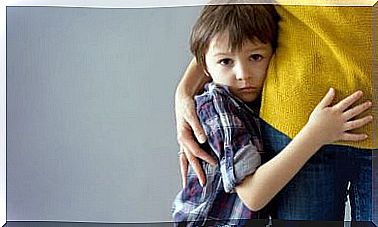How Mother’s Absence Affects Children – Being Parents

The integral development of a child is made up of different aspects, ranging from physical needs to emotional needs. The relationship with his mother or father is a condition for the child to develop correctly psychically and emotionally.
For various reasons specific to the evolution of life or perhaps due to tragic circumstances. Not all children are fortunate enough to have a mother while they are growing up. On the other hand, others have it, but don’t share much time with her for professional reasons, a separation in the couple or other reasons of force majeure.
This absence of the mother can have an impact on the growth of a child. It will also depend on the environment in which he grows up and how the situation is handled by those who have him under their responsibility.
What does a mother give to her child?
The first thing that happens when you think about it is the word protection. And it is like that, in almost every plan of life. In the first place, it is our mother who conceives us, introduces us into the world and nourishes us from an early age. It is therefore clear that this union is essential to the existence of each person.
On the other hand, as we grow older, it is the mother who is there to restore any negative moods. It must relieve, calm, reassure, drive away evil. When he is nervous, scared, angry or hurt, she is the one who comes to his aid unconditionally.

The consequences of the mother’s absence
The mother is the most important figure of attachment right from the start of a child’s life . Therefore, the mother’s absence can have significant consequences. Here are the main ones:
- Negative feelings. The child feels neglected or alone, because he does not receive the necessary dose of love and affection. He may experience rejection, frustration, or anger.
- Bad behavior. Not responding to orders, reluctantly asking for things, harming yourself or others. Usually being in a bad mood all the time. This is common in children who experience the absence of one of their parents. You must know how to help them overcome this phase with affection and patience.
- A lack of development of social relations. Following the line of the preceding reasons, social relations have also deteriorated. Children, perhaps out of mistrust or because they have not learned the necessary social skills, find it difficult to relate to others. On the other hand, they can develop a dependency on those who are there for them.
- An emotional imbalance. This results in: irritability, low self-esteem, depression, anxiety, lack of motivation, etc.
- Health issues. There are children who, in the absence of the mother, even lose their appetite. This, along with emotional imbalances, causes health deficits. It also deserves immediate professional attention.

How to help the child to overcome the absence of the mother?
Despite all of the above, there are ways to help a child cope with their mother’s absence and its consequences. Here are some tips for parents or guardians to whom they are left:
- Fulfill the role of the mother figure. Although it is not straightforward, a parent or other guardian can fulfill the role of mother and father at the same time. It takes a lot of tact, understanding and affection to make it happen. But it is a very beneficial solution for both parties. Thus, they will fill the void inside the child, at least in part.
- Find a replacement. With the help of aunts, grandmothers or any other female figure who belongs to the child’s family, you can find a “replacement” for his mother. As above, the bond should not be forced and should be built gradually, based on trust and love.
- Explain the situation. As they say, with the truth it goes everywhere. So, the ideal is to tell the child the precise situation for which his mother is not in his life. Sooner or later it will grow up and you will have to do it anyway.
In cases where the mother’s absence is partial (for reasons of work, for example), the discharge may be easier. Several studies have concluded that the quality is more important than the length of timeshare.
There are times when you need to devote your full attention to your children . Remember that the sum of these moments will help you considerably.
It is not necessary to force this. You can choose to play, walk, or help them with their homework. This way, they will feel valued and supported. They will also see that their mother is interested in them, loves them and supports them. In other words, the child must be able to count on a real presence on a daily basis.









